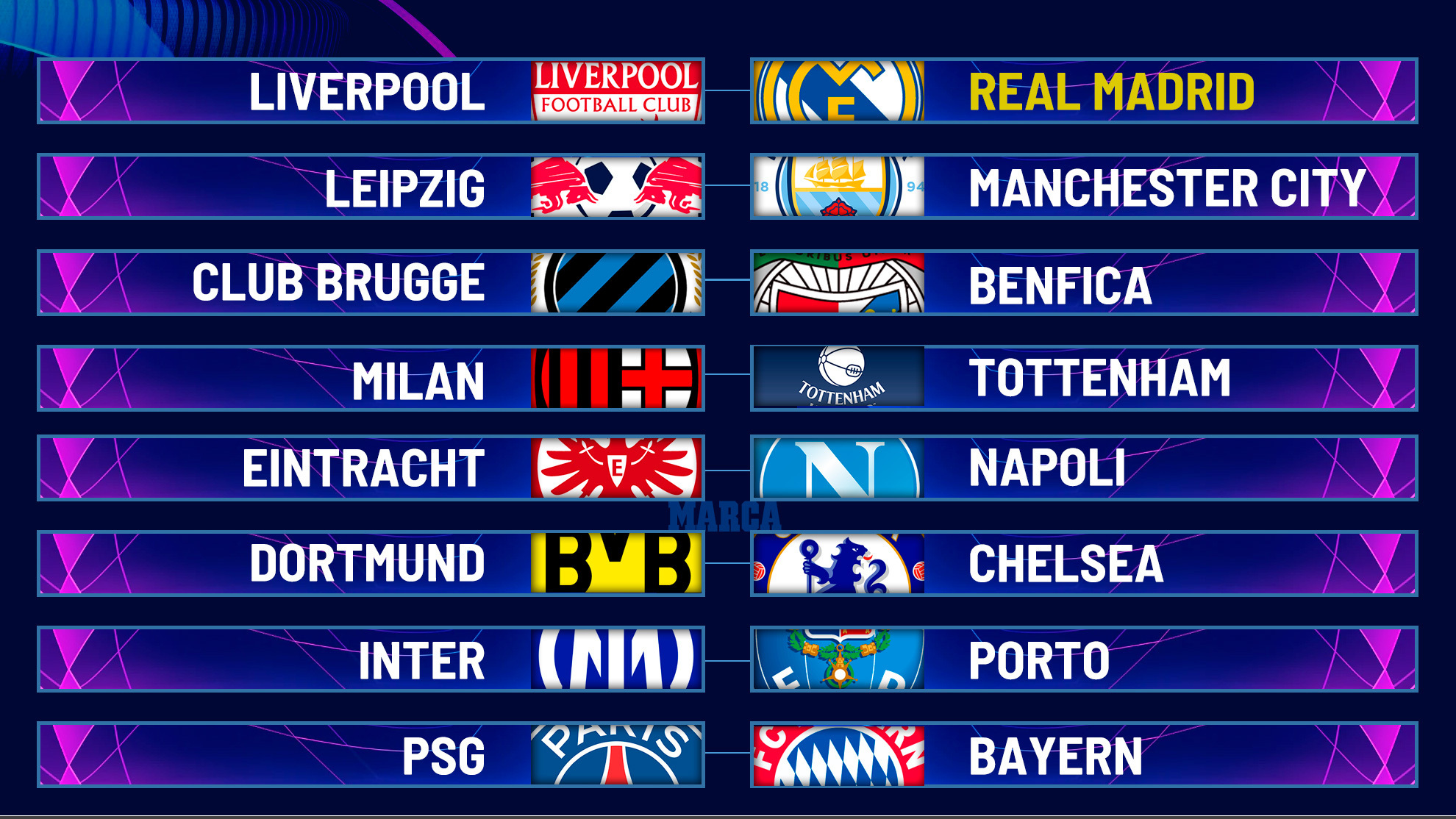
The Champions League Conundrum: When Fan Passion Collides with Expert Precision
The UEFA Champions League, football’s most prestigious club competition, is a theatre of dreams, a crucible of champions, and a perennial source of fervent debate. Every season, as the group stage draws to a close and the knockout rounds loom, a fascinating dichotomy emerges: the impassioned predictions of the ardent fan versus the calculated analyses of the seasoned expert. This clash of perspectives – the heart versus the head – is not merely an academic exercise but a fundamental part of the UCL’s enduring appeal, shaping narratives, fueling discussions, and ultimately, defining the very essence of the beautiful game.
At its core, the Champions League is an unpredictable beast. While giants often prevail, the competition is also littered with heroic upsets, improbable comebacks, and the kind of narrative twists that defy logic. It is precisely this inherent unpredictability that creates fertile ground for both fan optimism and expert skepticism, often leading to a stark divergence in expectations.
The Voice of the Fan: A Symphony of Emotion and Unwavering Loyalty
To understand the fan’s perspective is to delve into the very soul of football. For supporters, the Champions League isn’t just a series of matches; it’s a tribal ritual, a test of faith, and an extension of their identity. Their predictions are less about objective analysis and more about a visceral connection to their club.
Characteristics of Fan Predictions:
- Unwavering Loyalty and Bias: This is the most defining characteristic. A fan’s team, regardless of their recent form, injury list, or tactical shortcomings, is always perceived as having a chance. "We’re going to win it all!" echoes across social media and pub tables, even when facing a seemingly insurmountable opponent. This bias isn’t a flaw; it’s a feature, born from years of dedication, shared triumphs, and collective heartache.
- Emotional Investment: Victories are euphoric, defeats are devastating. Predictions are often colored by recent results – a thrilling win can breed boundless optimism, while a shock loss can lead to despair, even if temporary. This emotional rollercoaster often overrides rational assessment.
- Belief in Intangibles: Fans are the primary believers in the "magic" of the Champions League. They champion the power of the home crowd, the legendary status of the club, the never-say-die attitude of their players, or a manager’s unique ability to inspire. They believe in the "spirit" of the game to overcome statistical disadvantages. Think of Liverpool’s comeback against AC Milan in Istanbul (2005) or Barcelona’s "Remontada" against PSG (2017) – moments where sheer will and belief seemed to defy all odds, solidifying the fan’s conviction that anything is possible.
- Narrative-Driven: Fans love a good story. The underdog tale, the revenge match, the redemption arc – these narratives often heavily influence their predictions, sometimes more than tactical setups or player form. They root for the narrative to come true, actively willing it into existence.
- Recency Bias: A spectacular goal or a decisive save in the previous match can disproportionately influence a fan’s belief in a player or team’s capabilities, overshadowing a longer-term trend.
While often dismissed as irrational, fan predictions possess a unique power: they fuel the atmosphere, generate unparalleled excitement, and are a testament to the enduring human desire for hope. They embody the romanticism of football.
The Expert’s Lens: A Prism of Data and Dispassionate Analysis
In stark contrast to the emotional fervor of the fan, the expert approaches Champions League predictions with a toolkit of data, tactical knowledge, and a detached perspective. These are the pundits, statisticians, former players, and highly informed journalists whose livelihoods depend on accurate, insightful analysis.
Characteristics of Expert Predictions:
- Data-Driven and Analytical: Experts meticulously analyze statistics: expected goals (xG), possession percentages, pass completion rates, defensive solidity, individual player metrics, historical head-to-head records, and current form. They look for trends, patterns, and underlying metrics that might not be immediately obvious to the casual observer.
- Tactical Acumen: A deep understanding of football tactics is paramount. Experts dissect formations, pressing schemes, transition play, set-piece routines, and individual player matchups. They can identify vulnerabilities and strengths that fans might overlook. For instance, they might predict a team’s struggle against a high press or highlight a specific midfielder’s importance in controlling the tempo.
- Squad Depth and Injury Assessment: Injuries to key players, or the overall depth of a squad, are crucial factors for experts. They understand that a single absence can significantly alter a team’s chances, especially in the grueling knockout stages.
- Financial and Historical Context: Experts often consider the financial power of clubs, their transfer market activity, and their historical performance in the competition. Teams with vast resources can often attract top talent, build deeper squads, and withstand financial pressures better, giving them an inherent advantage.
- Probabilistic Thinking: Rather than declaring a definitive winner, experts often think in probabilities. They might state that Team A has a 60% chance of progressing, acknowledging the inherent randomness and potential for upsets while still favoring the statistically stronger side.
- Objectivity (mostly): While no human is entirely free of bias, experts strive for objectivity. Their predictions are meant to be informed by facts and reasoned arguments, not personal allegiance.
Expert predictions aim for accuracy and provide a more grounded, realistic outlook on the competition. They represent the scientific, logical side of football analysis.
The Points of Convergence and Divergence
Where do these two distinct worlds meet, and where do they dramatically part ways?
Convergence:
- Obvious Favorites: When a dominant team like peak Barcelona, prime Real Madrid, or a Bayern Munich in full flow faces a significantly weaker opponent, both fans and experts will generally agree on the likely outcome. The statistical superiority is too overwhelming to ignore, even for the most optimistic fan.
- Established Trends: If a team consistently underperforms in the UCL, regardless of domestic success, both experts and disillusioned fans might agree on their limited chances. Similarly, a team with a proven track record of deep runs often garners collective confidence.
Divergence:
- The Underdog Narrative: This is perhaps the most significant point of divergence. Fans, fueled by hope and the romance of the game, will cling to the slightest possibility of an underdog upsetting a giant. Experts, however, will often dismiss these chances as statistically improbable. Think of Ajax’s thrilling run to the semi-finals in 2019, where fans globally rallied behind them, while many experts still highlighted the statistical uphill battle they faced against more established European powerhouses.
- Tactical Nuances vs. Gut Feeling: An expert might predict a tactical stalemate or a narrow win based on a specific midfield battle or defensive strategy. A fan might simply feel "good" about their team’s chances because of a star player’s recent form, disregarding the tactical matchup.
- Emotional Clashes: Derby matches or games with significant historical animosity (e.g., Real Madrid vs. Bayern Munich) can lead fans to predict their team’s victory based on pride and rivalry, even when objective analysis suggests otherwise. Experts will try to strip away this emotion and focus on current form and tactical strengths.
- Player Intangibles vs. Data: While experts acknowledge the impact of world-class players, they integrate their performance into a broader statistical context. Fans might simply believe that their star player "will conjure something magical," regardless of the defensive strength of the opposition.
- Recency Bias vs. Long-Term Form: A fan might overreact to a single poor performance, instantly writing off their team. An expert will look at a longer trend, understanding that one bad game doesn’t necessarily define a team’s overall quality or chances.
The Role of Media and Social Media
The advent of 24/7 sports media and social platforms has amplified both fan and expert voices. Social media, in particular, has become a colossal echo chamber where fan opinions can rapidly spread and coalesce, sometimes leading to collective delusion or unbridled optimism. Experts, too, use these platforms to disseminate their analyses, engage in debates, and sometimes even challenge the prevailing fan narratives.
This constant interplay creates a vibrant ecosystem of discussion. News outlets often pit "fan polls" against "pundit predictions," highlighting the very dichotomy we’re discussing. It adds another layer of intrigue and entertainment to the Champions League narrative, allowing everyone to feel part of the conversation.
The Enduring Appeal: Why Both Perspectives Matter
Ultimately, the Champions League thrives on the tension between fan passion and expert precision.
The fan’s perspective is vital because it represents the heart and soul of football. It’s the belief in the impossible, the roar of the crowd, the unadulterated joy and despair that makes the game so compelling. Without this raw emotion, football would merely be a statistical exercise. Fan predictions, while often biased, embody the romanticism and unpredictable beauty of the sport. They remind us that sometimes, the human spirit can indeed defy the odds.
The expert’s perspective, conversely, provides the necessary grounding. It brings logic, structure, and a deeper understanding of the tactical and statistical intricacies that govern high-level football. Expert analysis helps us appreciate the strategic genius, the meticulous preparation, and the sheer athletic prowess required to compete at the highest level. It offers insights that can enrich a fan’s appreciation, even if it sometimes dampens their wildest hopes.
In essence, the Champions League is a rich tapestry woven from threads of both fervent emotion and precise analysis. The fan’s dream and the expert’s data are not mutually exclusive; they are complementary forces that enrich the experience. The beauty of the UCL lies not just in who wins, but in the thrilling, often unpredictable journey, fueled by the collective hope of millions of fans and dissected by the sharpest minds in the game. It is this dynamic, this constant push and pull between belief and reality, that ensures the UEFA Champions League remains the pinnacle of club football, captivating audiences year after year.



